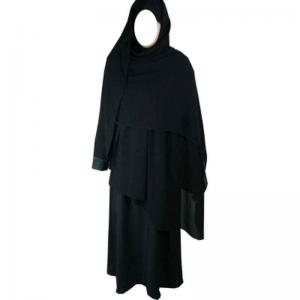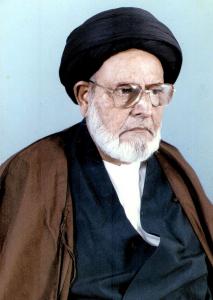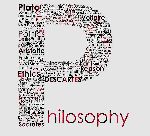Woman and Child
The Greatest Miracle of the Holy Prophet (S.A.W.)
- Published at
-
- Author:
- Shaykh Nasir Makarim Shirazi

When we say the most superior, it is because, in the first place, the Qur’an is not an intellectual miracle but rather has to do with the spirit and intellect of the people and secondly, it is eternal and everlasting and third, it is a miracle which has cried out for 14 centuries.
Equality but not Uniformity
- Published at
-
- Author:
- Shaheed Mutahhair
 We said that Islam has a special philosophy concerning the relations and rights of men and women within the family which differs from that which was current fourteen centuries ago and does not conform either with what is accepted in the world of today.
We said that Islam has a special philosophy concerning the relations and rights of men and women within the family which differs from that which was current fourteen centuries ago and does not conform either with what is accepted in the world of today.
Woman and Her Social Independence
- Published at
-
- Author:
- Shaheed Mutahhari
 A young girl came before the holy Prophet perplexed and anxious and exclaimed:
“O Messenger of Allah. . . From the hand of this father...”
A young girl came before the holy Prophet perplexed and anxious and exclaimed:
“O Messenger of Allah. . . From the hand of this father...”
The Diferences Between Woman and Man
- Published at
-
- Author:
- Shaheed Mutahhari
 The differences between woman and man! What an absurd idea! In spite of our living in the second half of the twentieth century there are still people here and there who think as if they were in the middle ages and maintain old and out-of- date ideas of differences between women and men and think that men and women are not the same as each other.
The differences between woman and man! What an absurd idea! In spite of our living in the second half of the twentieth century there are still people here and there who think as if they were in the middle ages and maintain old and out-of- date ideas of differences between women and men and think that men and women are not the same as each other.
The Human Status of Woman in The Quran
- Published at
 As what kind of entity does Islam envisage Woman? Does it consider her the equal of man in terms of dignity and the respect accorded to her or is she thought of as belonging to an inferior species? This is the question which we now wish to answer.
As what kind of entity does Islam envisage Woman? Does it consider her the equal of man in terms of dignity and the respect accorded to her or is she thought of as belonging to an inferior species? This is the question which we now wish to answer.
A Woman of Paradise: The Rebellious Queen of Pharaoh Part 2
- Published at
-
- Author:
- Fatemah Meghji
- Source:
- Ahlul Bayt World Assembly, Journal: Vol. 17, no. 3, Autumn 2016
 Perspectives about the ideal Muslim woman continue to be a kaleidoscope of various readings of different Muslim women throughout history. The four women of paradise, as cited in hadith literature, refer to Lady Maryam (Mary), Lady Asiyah (the wife of Pharaoh), Lady Khadijah (the wife of Prophet Muhammad), and Lady Fatimah (the daughter of the Prophet).
Perspectives about the ideal Muslim woman continue to be a kaleidoscope of various readings of different Muslim women throughout history. The four women of paradise, as cited in hadith literature, refer to Lady Maryam (Mary), Lady Asiyah (the wife of Pharaoh), Lady Khadijah (the wife of Prophet Muhammad), and Lady Fatimah (the daughter of the Prophet).
A Woman of Paradise: The Rebellious Queen of Pharaoh Part 1
- Published at
-
- Author:
- Fatemah Meghji
- Source:
- Ahlul Bayt World Assembly, Journal: Vol. 17, no. 2, Summer 2016
 Perspectives about the ideal Muslim woman continue to be a kaleidoscope of various readings of different Muslim women throughout history. The four women of paradise, as cited in the hadith literature, refer to: Lady Maryam (Mary), Lady Asiyah (the wife of Pharaoh), Lady Khadijah (the wife of Prophet Muhammad), and Lady Fatimah (the daughter of the Prophet).
Perspectives about the ideal Muslim woman continue to be a kaleidoscope of various readings of different Muslim women throughout history. The four women of paradise, as cited in the hadith literature, refer to: Lady Maryam (Mary), Lady Asiyah (the wife of Pharaoh), Lady Khadijah (the wife of Prophet Muhammad), and Lady Fatimah (the daughter of the Prophet).
What The Holy Qur'an And Traditions Say About Woman And Social Life
- Published at
-
- Author:
- Sayyid Sa'eed Akhtar Rizvi
 "O you who believe, do not enter houses other than your own houses, until you have obtained permission and greeted their dwellers; this is better for you, that you may remember."(Holy Qur’an, 24:27).
"O you who believe, do not enter houses other than your own houses, until you have obtained permission and greeted their dwellers; this is better for you, that you may remember."(Holy Qur’an, 24:27).
Book Review; The Tao of Islam: A Sourcebook on Gender Relationships in Islamic Thought, by Sachiko Murata (Albany: State University of New York Press, 1992).
- Published at
-
- Author:
- Dr. Muhammad Legenhausen
- Source:
- www.al-islam.org
 This work is a true masterpiece, not only of translation and exposition, but of Islamic propagation, as well. The work as a whole provides the best rejoinder yet given to the attack made on Islam from various feminist quarters both in the West and in the Muslim world. In brief, the answer is that the critics fail to see past the surface of Islam, a surface which is then judged by modern Western standards, while an adequate understanding of the feminine in Islam is impossible without an immersion in the ocean of Islamic spirituality,...
This work is a true masterpiece, not only of translation and exposition, but of Islamic propagation, as well. The work as a whole provides the best rejoinder yet given to the attack made on Islam from various feminist quarters both in the West and in the Muslim world. In brief, the answer is that the critics fail to see past the surface of Islam, a surface which is then judged by modern Western standards, while an adequate understanding of the feminine in Islam is impossible without an immersion in the ocean of Islamic spirituality,...
The Use of Reading Questions As a Pedagogical Tool: Fostering an Interrogative, Narrative Approach to Philosophy (1)
- Published at
-
- Author:
- Anne-Marie Bowery
- Source:
- http://web.archive.org
 In this paper I examine the text of the Symposium to illustrate two non-philosophical responses to Socrates' pedagogical provocation. While Apollodorus and Aristodemus, two Socratic disciples, demonstrate their erotic commitment to Socrates, they do not practice philosophy. They manifest their non-philosophical behavior in two ways. First, they idolize and imitate Socrates. Second, they constantly tell stories about Socrates.
In this paper I examine the text of the Symposium to illustrate two non-philosophical responses to Socrates' pedagogical provocation. While Apollodorus and Aristodemus, two Socratic disciples, demonstrate their erotic commitment to Socrates, they do not practice philosophy. They manifest their non-philosophical behavior in two ways. First, they idolize and imitate Socrates. Second, they constantly tell stories about Socrates.
Media and the Islamic Identity of the Muslim Child (1)
- Published at
-
- Source:
- Islamweb.net
 1- The meaning of the child’s culture:
Culture refers to a combination of beliefs, morals, traditions, laws, knowledge and behavioral patterns that one acquires within society.
Children have their special and distinguished vocabularies, as well as special values and methods that they use in playing, expressing themselves and satisfying their needs. They also have special reactions, stances, trends, emotions and lifestyle. We call all this the “child’s culture”.
1- The meaning of the child’s culture:
Culture refers to a combination of beliefs, morals, traditions, laws, knowledge and behavioral patterns that one acquires within society.
Children have their special and distinguished vocabularies, as well as special values and methods that they use in playing, expressing themselves and satisfying their needs. They also have special reactions, stances, trends, emotions and lifestyle. We call all this the “child’s culture”.
Media and the Islamic Identity of the Muslim Child (2)
- Published at
-
- Source:
- Islamweb.net
 1- The importance of protecting children from the media invasion and the obliteration of identity:
Childhood is one of the most important stages in one’s life, because his personality and tendencies are formed during this time, in addition to physical and mental growth.
1- The importance of protecting children from the media invasion and the obliteration of identity:
Childhood is one of the most important stages in one’s life, because his personality and tendencies are formed during this time, in addition to physical and mental growth.
Polygamy in Islam
- Published at
-
- Source:
- http://www.islamreligion.com
 Islam is criticized for allowing polygamy, for popular culture in the West views polygamy as relatively backward and impoverished. For many Christians, it is a license to promiscuity, and feminists consider it a violation of women’s rights and demeaning to women.
Islam is criticized for allowing polygamy, for popular culture in the West views polygamy as relatively backward and impoverished. For many Christians, it is a license to promiscuity, and feminists consider it a violation of women’s rights and demeaning to women.
Why do I as a muslim woman wear Hijab?
- Published at
-
- Source:
- http://www.islamreligion.com
 I probably do not fit into the preconceived notion of a “rebel”. I have no visible tattoos and minimal piercing. I do not possess a leather jacket. In fact, when most people look at me, their first thought usually is something along the lines of “oppressed female.”
I probably do not fit into the preconceived notion of a “rebel”. I have no visible tattoos and minimal piercing. I do not possess a leather jacket. In fact, when most people look at me, their first thought usually is something along the lines of “oppressed female.”
Great Lady Mary in Islam (01 of 03)
- Published at
-
- Source:
- http://www.islamreligion.com
 Mary, the Mother of Jesus, holds a very special position in Islam, and God proclaims her to be the best woman amongst all humanity, whom He chose above all other women due to her piety and devotion.
Mary, the Mother of Jesus, holds a very special position in Islam, and God proclaims her to be the best woman amongst all humanity, whom He chose above all other women due to her piety and devotion.
Great Lady Mary in Islam (02 of 03)
- Published at
-
- Source:
- http://www.islamreligion.com
 God informs us of the instance the angels gave Mary the glad tidings of a child, his soon to be status on earth, and some of the miracles he will perform:
God informs us of the instance the angels gave Mary the glad tidings of a child, his soon to be status on earth, and some of the miracles he will perform:
Great Lady Mary in Islam (03 of 03)
- Published at
-
- Source:
- http://www.islamreligion.com
 On the onset of her labor, she was in extreme pain, both mentally and physically. How could a woman of such piety and nobility bear a child out of wedlock? We should mention here that Mary had a normal pregnancy which was no different than other women, and delivered her child as others do.
On the onset of her labor, she was in extreme pain, both mentally and physically. How could a woman of such piety and nobility bear a child out of wedlock? We should mention here that Mary had a normal pregnancy which was no different than other women, and delivered her child as others do.
Islam's Position on Polygamy
- Published at
-
- Author:
- Dr. Bilal Philips
- Source:
- http://www.islamswomen.com
 Muslims are often accused of being promiscuous because polygamy is legal in Islam.
Islam did not introduce polygamy. Unrestricted polygamy was practiced in most human societies throughout the world in every age. Islam regulated polygamy by limiting the number of wives and establishing responsibility in its practice.
Muslims are often accused of being promiscuous because polygamy is legal in Islam.
Islam did not introduce polygamy. Unrestricted polygamy was practiced in most human societies throughout the world in every age. Islam regulated polygamy by limiting the number of wives and establishing responsibility in its practice.
How I Came to Love the Veil?
- Published at
-
- Source:
- http://www.islamreligion.com
 I used to look at veiled women as quiet, oppressed creatures -- until I was captured by the Taliban. In September 2001, just 15 days after the terrorist attacks on the United States, I snuck into Afghanistan, clad in a head-to-toe blue burqa, intending to write a newspaper account of life under the repressive regime.
I used to look at veiled women as quiet, oppressed creatures -- until I was captured by the Taliban. In September 2001, just 15 days after the terrorist attacks on the United States, I snuck into Afghanistan, clad in a head-to-toe blue burqa, intending to write a newspaper account of life under the repressive regime.


